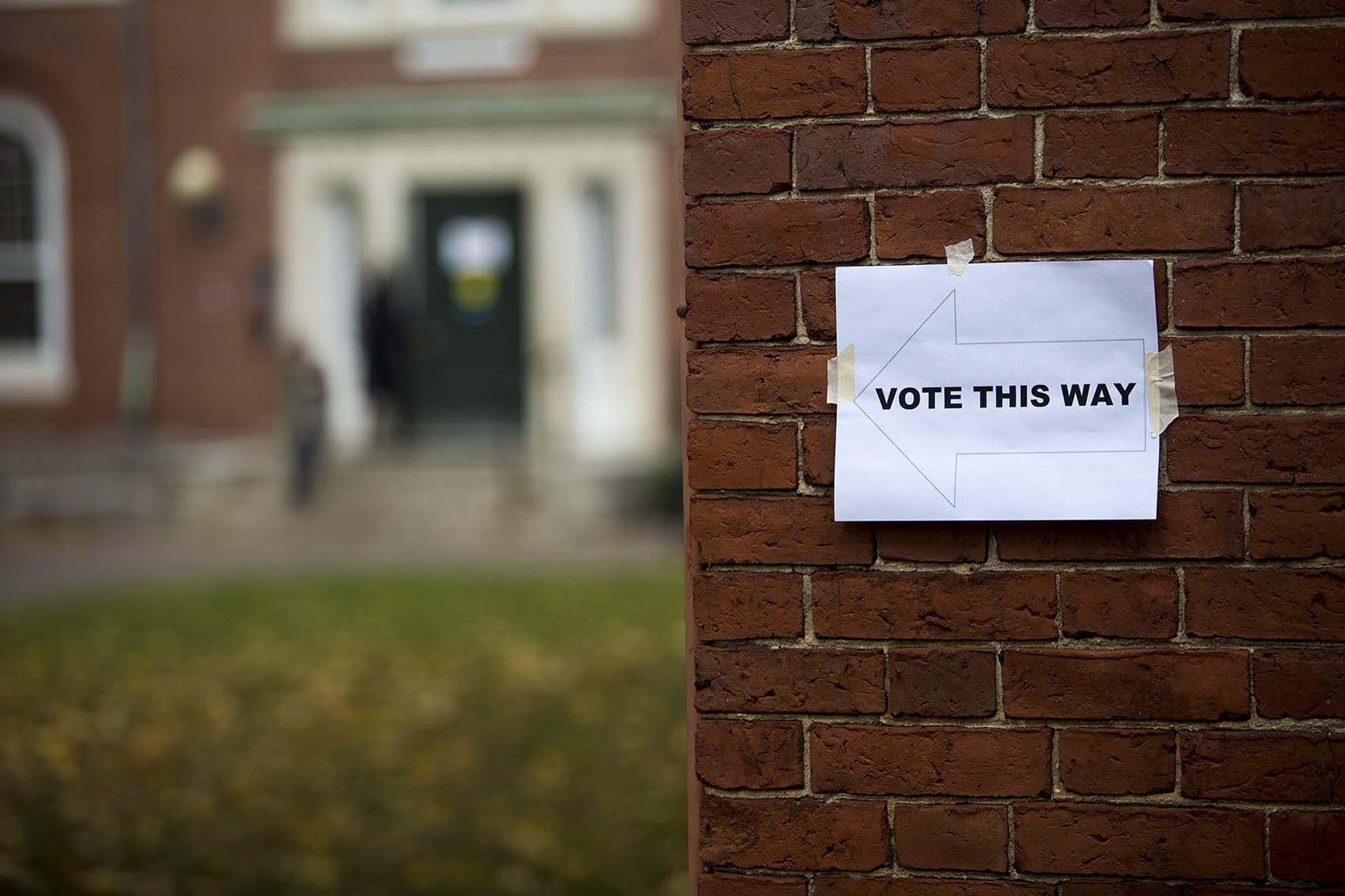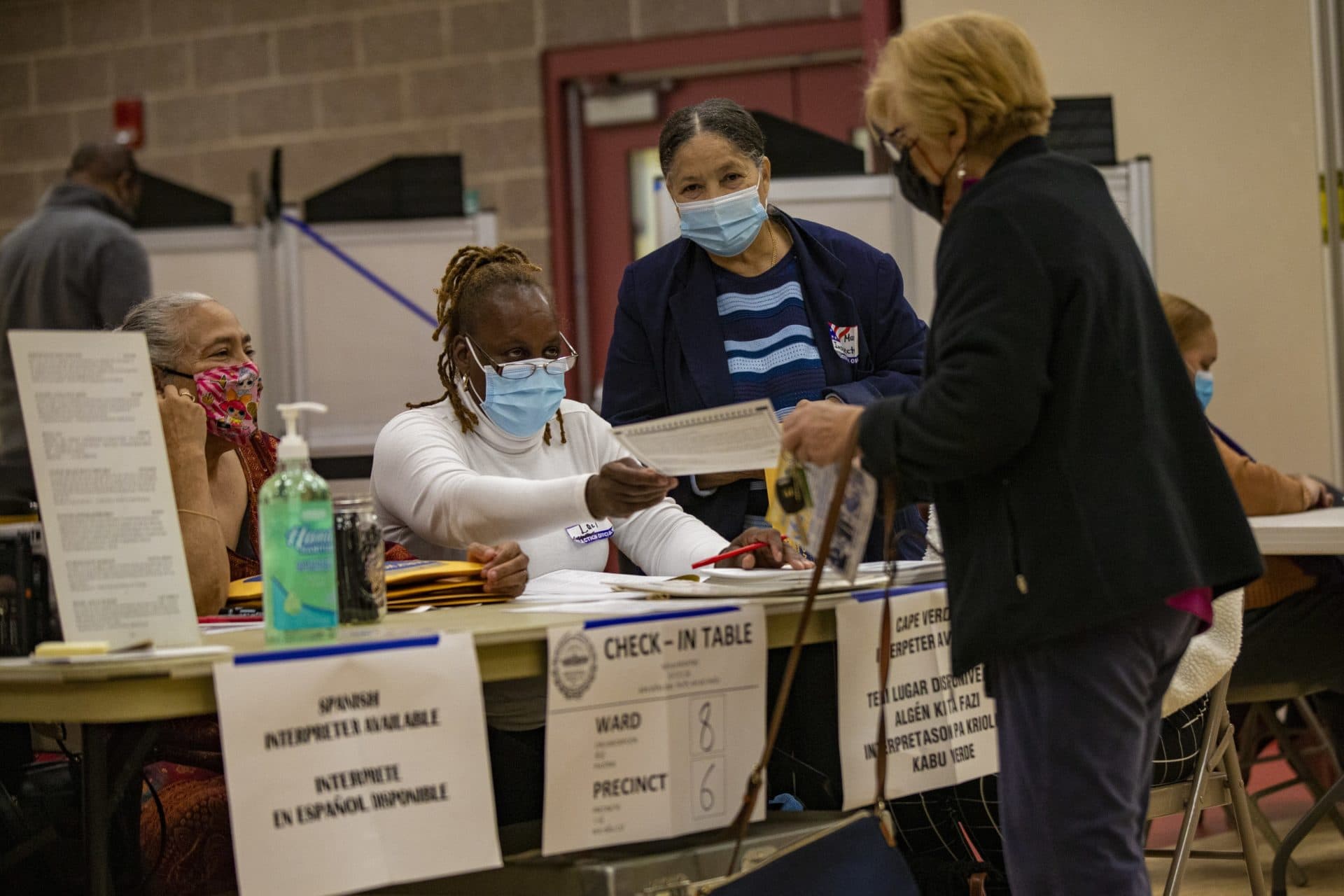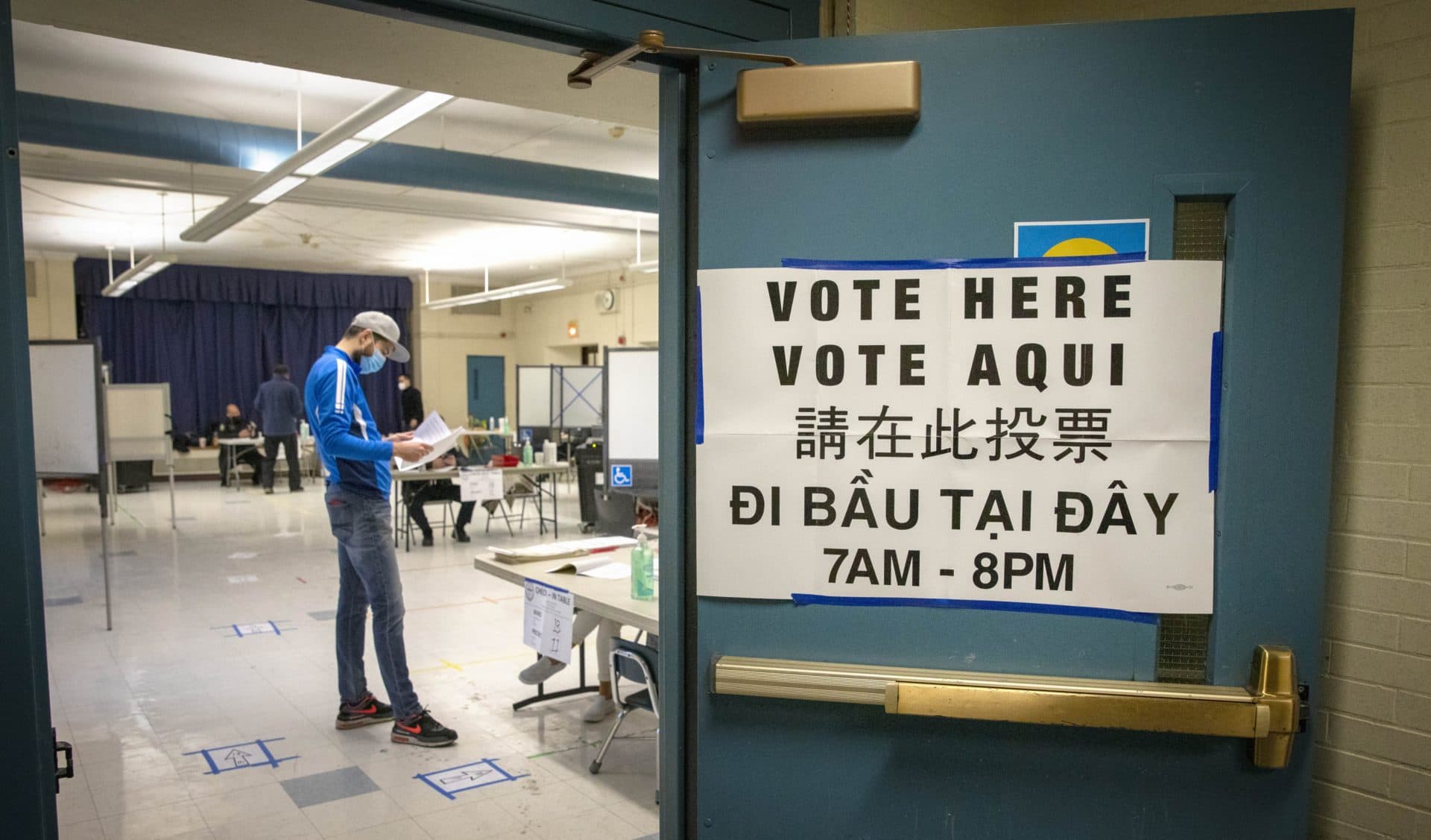Advertisement
Voters, the Massachusetts primary is near. Here's what you need to know

It's election season once again in Massachusetts — and a lot is up for grabs.
This year, voters will cast ballots in five contested statewide races, four of which have no incumbent. That includes the elections for governor and lieutenant governor, after Republican Gov. Charlie Baker and Lt. Gov. Karyn Polito decided to forgo a run at a historic third term, leaving a wide-open contest. And while many people already have their sights trained on November, it's the September primary that often proves most competitive — and decisive — in Massachusetts.
Additionally, state lawmakers agreed this year to permanently institute a number of COVID-19 pandemic-induced early voting and vote-by-mail reforms. So there are a few distinct voting options you should keep in mind as you prepare to cast your ballot.
Here's a guide to navigating it all:
Registering to vote
First things first: Make sure you're registered to vote. Maybe you already are, thanks to the state's automatic voter registration system. But it doesn't hurt to double check. It's also easy! Simply go on the state's website and enter your name, birth date and zip code.
If your registration status is active and your address is up to date, you're all set.
If not, you can register to vote or update your information online — but only if you have a driver's license or ID issued by the Registry of Motor Vehicles.
If you don't have a state-issued ID but still meet the eligibility criteria (U.S. citizen, Massachusetts resident and at least 18 years old on Election Day), you must fill out an application form and either mail it or take it in person to your local election office.
Also — and this is important — you need to make sure you register by Saturday, Aug. 27 to vote in the Sept. 6 primary.
Advertisement
That's because, unlike 21 other states with some form of same-day registration, Massachusetts does not allow residents to register to vote at the polls on Election Day. (Despite support among Democrats in the state Senate, its adoption has been repeatedly stymied by leaders in the House.)
Lawmakers did, however, permanently shorten the registration deadline this year to 10 days before the election, down from 20 days. So you have a little more room to procrastinate; just don't leave it until the last minute.

All the ways to vote
The shortened registration deadline isn't the only new permanent feature of Massachusetts elections this year. The law that legislators in the Democrat-controlled State House passed this year preserves several other popular pandemic-era voting measures, including expanded early voting and no-excuse absentee voting (aka mail-in voting).
Debra O'Malley, a spokeswoman for Secretary of State Bill Galvin, says the election will look a lot like the 2020 election, with perhaps one noticeable difference.
"I would anticipate a lot more people will be voting in person," O'Malley said.
That means many residents may get to take advantage of an opportunity they may not have known existed for the last statewide election: early voting in the state primary.
While Massachusetts has offered early voting before general elections since 2016, the new law now requires cities and towns to hold one week of early voting — including the weekend — before every state (and presidential) primary elections. This year, that means Saturday, Aug. 27 to Friday, Sept. 2. (The new law also permanently expands early voting before the November general election to two weeks.)
Your local early voting hours, however, might vary.
That's because the law only requires the state's largest cities — like Boston, Worcester and Springfield — to host full days of early voting. Towns with fewer than 5,000 registered voters can set up early voting for as little as two hours a day; though, these communities also can keep the polls open for longer.
Depending on where you live, you may also see more or fewer early voting locations. Boston plans to release a full map of sites. Meanwhile, if you live in a small-to-medium-sized town, you'll probably head to your town hall to vote early, O'Malley says.
One unique perk of early voting: if you do have multiple sites in your community, you can vote inside any of them. That's because — unlike on Election Day — each early voting site will have ballots for every different precinct (or even sub-precinct) in the community. So you can hit that polling station closest to home, or joy ride to another across town. As long as you only vote once and in your own community, it's your choice! (Just make sure to pick your specific neighborhood polling place if you vote on Election Day; it's the only site with your correct ballot.)
Galvin's office will post early voting locations and hours for each city and town in Massachusetts on its website by mid- to late August, according to O'Malley. You can also check with your local election office; the law requires them to post early voting hours on municipal websites by Monday, Aug. 22.
But, if like many busy New Englanders, you'd rather cross this off your long to-do list now, there's another option.
The new law enshrines no-excuse absentee voting. Any registered voter can vote by mail — no special reasons required.
The state is required to send mail-in ballot applications to all registered voters by Saturday, July 23. Many voters already have plucked the applications from their mailboxes.
Not seeing your application in the mail? Or accidentally threw it out? No worries.
You can simply print an application off the state's website to request mail-in ballots for both the primary and general election. You can also ask to vote by mail through an internet "portal" Galvin's office says should be live by the end of July.
Technically, you could even write your own request on a piece of paper or on the back of an old, crumpled-up grocery store receipt. Seriously! According to Galvin's office, "any written request with your signature is an acceptable application."
Then, just send — or email, fax or hand-deliver — it to your local election office.
The deadline to apply to vote by mail is Monday, Aug. 29. But if you want to actually mail in your ballot, you'll want to apply a good deal earlier than that. Why? Because you need provide time for your election office to get your application and send you a ballot. Plus, then you need to decide who to vote for and return your ballot.
And unlike the general election, your primary ballot needs to be returned by 8 p.m. on Tuesday, Sept. 6 (an Election Day postmark doesn't cut it if it arrives a few days later).
O'Malley says that three weeks is the ideal buffer time between the day you request your mail-in ballot and Election Day — or at least about two weeks. In other words, any later than mid-August and you may want to consider returning your ballot by hand or voting in person.
Speaking of which, there are a number of ways to return your mail-in ballot.
- You can (of course) mail it back using the provided envelope. It's free! And you can also track your ballot's return status online to make sure it was received.
- You can bring it in person to your local election office.
- You can drop it off at an early voting location during designated hours. (Please note: you cannot return it to polling places on Election Day.)
- You can maybe drop it off at a ballot drop box. The new law lets cities and towns decide if they want to stand up drop boxes. Some cities, like Boston, plan to place numerous drop boxes across the city, while other communities may dedicate a single drop-off spot outside city hall or town offices. Galvin's office has a running list of drop box locations here.
Generally speaking, once you cast your ballot, it's final. There are no second chances or take backs if you change your mind later on, even if you cast your ballot early.
However, if you mailed your ballot close to Election Day and are worried about it arriving on time, you can show up and vote at your polling place just to be safe. In fact, Galvin's office recommends it if things are getting down to the wire and the online tracker says your ballot isn't accepted yet.
"You're not voting twice," O'Malley explained. "Because if you get to your polling place and actually your ballot arrived an hour ago, and we've accepted it, they'll tell you, 'Nope. We got your ballot. You've already voted. Sorry. You can't vote again.' Or if you vote in person and your ballot arrives the next day, your ballot will just be rejected because you already voted."
Hate dealing with mail? Well, you could just vote in the state primary the old-fashioned way and head to the polls on Sept. 6. That's the Tuesday after Labor Day. Polls must remain open from 7 a.m. until 8 p.m. — and if you're in line by 8 p.m., state law requires your ballot be counted.
One benefit of voting on Election Day: according to O'Malley, it will likely be quicker.
That's mostly due to the fact that there are simply more locations compared to early voting, with voters spread out across precinct-based polls on Election Day.
"Early voting is good for voting on a day that’s convenient for you, but Election Day is often a faster voting experience, especially now that many voters have already voted by then," O'Malley said.
At the polls
Massachusetts doesn't have any broad voter ID laws, meaning most residents are good to go if their names show up on the registration list.
However, there are some scenarios where you may be asked to show ID. That includes if you're a first-time Massachusetts voter in a federal election, or if your voter status is "inactive," which can happen if you don't respond to your city or town's yearly census.
Acceptable forms of ID include a driver's license, state-issued ID card, recent utility bill, lease, a copy of a voter registration affidavit or "any other printed identification which contains the voter's name and address," according to Galvin's office.
If you need to show ID and don't have it, you can fill out a provisional ballot. The catch, however, is that you need to return later that day with an ID, or your ballot won't be counted.

Now, the hard part: Who do you vote for?
Elected positions in Massachusetts, from governor down to local state representatives, are on the ballot this year (with the exception of some municipal roles and U.S. senator; Sens. Elizabeth Warren and Ed Markey have terms expiring in 2024 and 2026, respectively).
That includes five contested statewide races:
Governor and Lieutenant Governor
On the Democratic side, it's a one-woman race for the corner office. Massachusetts Attorney General Maura Healey is essentially the sole Democratic candidate, after her biggest opponent, Sonia Chang-Díaz, said she would end her campaign. (Despite this, Chang-Díaz's name will still appear on the primary ballot.)
There is, however, a three-way race to become Healey's general election running mate.
Salem Mayor Kim Driscoll, Acton state Rep. Tami Gouveia and Longmeadow state Sen. Eric Lesser are locked in a competitive primary for lieutenant governor. The job has few official duties and often involves serving as a liaison between the governor's office and local cities and towns.
Those three candidates have said they'd bring slightly different approaches: Driscoll has pitched her first-hand understanding of municipal government; Gouveia has run on her progressive bonafides and focus on equity; and Lesser has pledged to ensure western Massachusetts and Gateway Cities have a seat at the table.
On the Republican side, the candidates for governor and lieutenant governor have already formed unofficial tickets. Former Whitman state Rep. Geoff Diehl is running with fellow former lawmaker Leah Cole Allen, while Wrentham businessman Chris Doughty has paired up with former state Rep. Kate Campanale.
Both candidates pitch themselves as conservatives, focused on cutting taxes and "empowering" parents in their children's education. Diehl has picked up the support of former President Donald Trump and local Republican activists, though Doughty — a self-funding first-time candidate — contends he'd have a better chance in a general election against Healey.
We'll have more to come on the governor's race and other down-ballot contests as primary day nears on the radio, in our daily newsletter WBUR Today and on wbur.org.
For now, here's a look at the candidates in the other contested statewide primaries.
Attorney General
Democratic candidates:
- Andrea Campbell, former Boston city councilor
- Shannon Liss-Riordon, labor lawyer
- Quentin Palfrey, lawyer, former White House advisor and Democratic nominee for lieutenant governor in 2018
The Democrats met for a debate at WBUR's CitySpace on Aug. 10. You can watch that debate here.
Republican candidates:
- Jay McMahon, lawyer
Secretary of State
Democratic candidates:
- Bill Galvin, current Massachusetts secretary of state
- Tanisha Sullivan, president of the NAACP's Boston chapter
The two candidates engaged in a debate at WBUR on Aug. 8 ahead of their primary race. You can watch the debate here.
Republican candidates
- Rayla Campbell, radio host
Auditor
Democratic candidates:
- Chris Dempsey, former state transportation official and advocate
- Diana DiZoglio, state senator
The two candidates met inside WBUR's studios on Aug. 3 for their first debate ahead of the Democratic primary. You can watch the debate here.
Republican candidates:
- Anthony Amore, Gardner Museum security director
